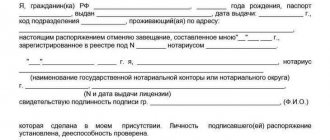Apartments are becoming an integral part of our lives and significantly simplifying it. It is difficult to find a person who would not want to acquire such real estate .
You can find out how long free privatization in Russia has been extended for, and how much it will cost at the end of this period, how to privatize an apartment if the warrant for it has been lost, and also how to fill out an application on our website.
general information
Many citizens think that in order to become a full-fledged owner of an apartment, all they need to do is acquire ownership of it.
In part, such thoughts are correct, because ownership is of decisive importance in matters of who actually owns the property.
However, we should not forget about another important action, which is called privatization.
The concept itself came to us from the Soviet Union. Then all state real estate was urgently transferred to private property , which, of course, presupposed a certain procedure.
But you should not think that today all real estate is privately owned, and there is no need for the procedure.
Many citizens continue to live in housing under a social tenancy agreement , but in fact, the real estate is purely state property. In some cases, it is still possible to privatize such an apartment if a number of factors are met.
But sometimes a successfully completed procedure raises questions among some citizens, calling into question its legality . Therefore, sometimes there is a need to challenge this procedure or make changes to the procedure. We will talk about these issues in this article.
Read about the procedure for deprivatizing an apartment in our article. A sample claim to the court for recognition of the right to privatize residential premises is available.
Suspension of the privatization process
Until the moment of state registration of property rights has arrived, it is permissible to suspend the privatization process at any stage.
The reasons for the suspension of housing privatization most often include birth
a new child, the appearance of a new citizen in the family who may become a participant in privatization, or marriage. In this case, privatization will be suspended at the will of its participants.
If housing is not registered as municipal property of the city, then privatization may be suspended for reasons independent of the participants.
Also, the privatization process can be stopped due to the decision of state registrars: if the registrar has doubts about the legality of the transaction or the authenticity of the documents provided, or the package of documents turned out to be incomplete.
The deadline for stopping privatization is three months. If the deadlines have expired, an official refusal to register the housing privatization transaction is issued.
Preferential mortgages for large families are a real solution in a number of situations! You will learn how to allocate a share from common shared property in our thematic article. How to take the extract you need from the house register, you will read in our material at the link.
When is it considered illegal?
In what cases is it possible to invalidate a process? Not every privatization procedure is considered illegal .
The legislator has established only a number of factors that, one way or another, may influence the consequences of the procedure to be rejected . So, let's look at some of them:
- If it was carried out on behalf of a minor citizen, then it is likely that such an action could be challenged in court, but for what reason? The fact is that a minor, due to his age, cannot fully understand the full responsibility of the decision, and his representatives can make a transaction, guided not by the interests of the child, but by their own benefit. If this fact is proven in court, the procedure will be considered invalid.
- If a citizen was declared incompetent, and this procedure was also carried out on his behalf, there is every reason to try to recognize the process as illegal, since the person cannot fully understand the full responsibility of the actions he carries out.
- If there is a limited capacity, then such a procedure is also called into question. The last reason, which somewhat stands out from the general series, is due to the fact that the person, agreeing to the transaction, could not and for certain reasons was not at all aware of all the consequences of the action being taken.
The reasons do not end there; there are many of them, depending on the specific situation. Within the framework of this article, you and I have examined the main ones cited in judicial practice.
Another case when privatization may turn out to be illegal is due to the fact that the procedure itself was directly violated .
This is manifested in the fact that the papers were drawn up in an invalid manner, incompetent persons were involved, as well as other dangers.
Another case of illegal appropriation of housing is the implementation of actions that simply do not have the right to carry out privatization .
One of the most significant violations is the signing of all available papers by a person who is incompetent in this matter.
Find out from our articles about the rights and obligations of the owner and those prescribed in a privatized apartment, what the owner of privatized meters will have to repair at his own expense, as well as how to refuse to participate in the procedure.
Refusals. Causes.
Refusal to deprivatization may follow for the following reasons:
- The apartment does not meet the requirements: it was not previously privatized, redevelopment was carried out.
- The applicant wants to deprivatize only its share.
- There were errors in the documents.
- The guardianship authorities refused to consent to deprivatization.
If everything above is in order, but the refusal still occurs, you need to clarify for what reason. To do this, it is recommended to request a refusal in writing, indicating specific data due to which this procedure is considered impossible. In some cases, you can achieve what you need by going to court.
Carrying out deprivatization is somewhat easier than privatization due to the fact that the technical passport of the BTI, with which most of the problems arose, will already be in hand. The remaining documents are not too difficult to collect. However, you will still have to spend your time and effort to implement the procedure. In addition, depending on the region of residence, you will also have to take into account local characteristics. At a free consultation, our specialists will help you understand the main, most controversial issues. They are ready to represent your interests, act as representatives, or even fight for deprivatization rights in court.
FREE CONSULTATIONS are available for you! If you want to solve exactly your problem, then
:
- describe your situation to a lawyer in an online chat;
- write a question in the form below;
- call Moscow and Moscow region
- call St. Petersburg and region
Save or share the link on social networks
(
1 ratings, average: 5.00 out of 5)
Author of the article
Natalya Fomicheva
Website expert lawyer. 10 years of experience. Inheritance matters. Family disputes. Housing and land law.
Ask a question Author's rating
Articles written
513
- FREE for a lawyer!
Write your question, our lawyer will prepare an answer for FREE and call you back in 5 minutes.
By submitting data you agree to the Consent to PD processing, PD Processing Policy and User Agreement
Useful information on the topic
22
Eviction from an apartment of an unregistered person, not the owner
A person lives in a residential building without registration, and he…
5
Statement of claim for eviction from an apartment
There can be many reasons for eviction. A careless tenant who in no way...
6
How to evict an illegally living person from an apartment
Often, a stranger who temporarily moves into someone else’s living space, after graduation...
1
What documents are needed to privatize an apartment?
What is needed to privatize an apartment? The list of papers is quite extensive that...
1
Privatization of a garage in a garage cooperative: procedure, general information
Due to the constant increase in the number of vehicles, the question of...
Timing for the privatization of dacha and land plots: until what year has free privatization been extended in Russia
Land privatization is a lengthy and rather complicated procedure that takes…
Can the results be challenged?
Unfortunately, the legislation does not have a clearly established normative act that would contain all the grounds for annulment, cancellation or any other way to invalidate the process.
There was no mention of this in other regulatory legal acts. Today we can be content with information about in which cases this action may fit the definition of illegal , as well as the time frame for appealing.
In this matter, it is very important to observe the concept of limitation of actions, which has been in Civil Law for a long time and is very suitable for this issue.
An entire regulatory legal act, called Federal Law No. 1541-1, is devoted to privatization itself.
You can find out whether it is possible to privatize an apartment with debts, a room in a communal apartment, cooperative, military or official housing on our website.
Is it possible to cancel the privatization of an apartment?
The right to cancel privatization arises on the basis of Article 20 of Law No. 189-FZ, as well as Article 9.1 of Law No. 1541-1. It should be taken into account that this possibility is not clearly described anywhere. Thus, the administration of each individual locality or region is guided by internal regulations when transferring back real estate of this type. These standards may differ from each other, but in general they are quite similar. Below is an average version of how privatization can be terminated. Specific details should be verified locally.
If the municipality refuses to deprivatize, the problem can be resolved through the court, since such a right exists.
Status
Very often, the status of the property itself does not allow any transactions to be carried out.
This happens when the property has already been privatized earlier, or is in someone else's ownership.
Privatizing status. If it turns out that a person does not have any right to carry out privatization , this action becomes impossible.
Due care must be taken to determine whether there are legal rights to own and use real estate.
Illegal redevelopment . Often, in pursuit of beautiful and modern renovations, citizens carry out redevelopment of real estate that has not yet been privatized.
This action is illegal, because all changes that were made in municipal housing must be negotiated and agreed upon in advance.
You can find out whether it is possible to privatize a dorm room, as well as who has the right to repeat the procedure, on our website.
Is it possible to challenge?
✅ Legal consequences of challenging
Recognition of a privatization agreement as invalid gives rise to legal consequences.
It does not matter whether the transaction is declared void or invalid - the consequences are the same:
- The apartment is returned to the owner, i.e. transferred from private property back to municipal property.
- Residents who have lost their rights can enter into a new social rental agreement with the right to subsequent free privatization (one time).
- Those discharged during the privatization period regain their registration in the same apartment.
- The privatization agreement can be preserved, subject to new changes (for example, determining the share of a minor).
This begs the question, what will be the threat to violators? The law does not apply any sanctions to them. However, the court may find fraudulent actions in the actions of the privatization participants. They face very real criminal liability.
Judicial procedure for challenging
Challenging involves only a judicial procedure for resolving the problem. Unfortunately, other types of permission for such a procedure are not permitted by law.
Before you decide to go to court, you need to carry out preparatory procedures. These include the procedure for determining the specific type of claim that you will file in a specific court.
Here we are talking about the difference between a void transaction and an invalid transaction. From civil law we know that invalid transactions are the result of ignorance of the law, and not of its gross violation.
Once you have decided what type of transaction you need to go to court, you need to draw up a procedural document called a statement of claim. Its preparation must be carried out in accordance with all the norms of the civil procedural code of our country.
Your application must be made using all known rules of general jurisdiction .
Also, do not forget that a certain list of Documents must be attached to it.
All documents must be photocopied and pasted in attachment format.
Do not forget that you pay the state fee .
About 30 days must pass after filing the claim. If the court approves your statement of claim, then next time you will be summoned to court.
It is there that a court hearing will take place to challenge the transfer of real estate into private ownership. Following the court hearing, a decision is made according to which the claim may or may not be satisfied.
Find out on our website also how to determine whether your apartment is privatized, where to start the registration process and whether you can submit documents through the MFC.
Is it possible to cancel the privatization of a share of housing?
You can only give up your share of the apartment if other residents also give up their shares, since deprivatization concerns the entire property as a whole, and not individual square meters.
Example: A family of four privatized an apartment. Each of the residents received 25% of this property. After some time, the father of the family decides to get a divorce and wants to deprivatize his share - 25%. When submitting an application, a refusal will follow, since deprivatization applies to the entire apartment as a whole, and not to a separate share.
Changes in terms and conditions
Changing the conditions may involve either going to court or solving the problem through agreements .
In the first case, you need to draw up a statement of claim and submit it to the district court. In this case, after 30 days you will be summoned to court at a hearing.
After the case is considered, the judge will make a decision in which he will allow you to make changes and conditions, or vice versa.
If we are talking about voluntary changes between municipal authorities and citizens, then in this case there must be a general agreement that does not contradict the law.
If one of the parties decides to change the conditions, it must rely on the law and in no case ask the court or its opponent to take actions that are not legal.
Cancellation
If we are talking about the cancellation or annulment of privatization, then the judicial procedure is also inherent here. It is impossible to undo a procedure that has already occurred on your own . Only the competent authority has the right to do this.
How to cancel? The claim is filed as part of drawing up a statement of claim.
It must meet all the requirements that apply to such situations.
The court considers the statement of claim and if it considers that it is drawn up correctly, factually and in accordance with the law, then it accepts it and sets a date for the hearing.
During the meeting, you meet with your opponents, discuss all the details of the cancellation, and also demonstrate to the court that you are right by providing evidence .
After considering the evidence presented, the court makes a decision in one favor or another. The court decision is mandatory, and bailiffs will monitor this.
The process of challenging in court
To challenge illegal privatization in court, you need to file claims in court.
Having written the appropriate application, indicate the facts on the basis of which privatization may be declared illegal and provide the necessary package of documents.
Persons who can file a claim to challenge privatization in court:
- Those who took part in the privatization process.
- Interested parties (for example, one of the family members).
- Guardians, trustees, etc.
- In some cases, prosecutors.
- Guardianship and trusteeship authorities, in the case of protecting the rights and interests of children or the incapacitated.
- Bodies of local administration and state power.
Prepare documents confirming your identity in advance
(passport), as well as those that confirm relationship.
It is best to seek qualified help from an experienced lawyer who will help you competently draw up a claim and check all the necessary documents.
If during court proceedings it was established that the conditions of privatization were met with the exception of a violation of the rights of the applicant, then, at the will of the applicant, the court may decide not to cancel the privatization, but to include this person in the privatization agreement and assign him a share in the property.
Typically, the process of challenging privatization in court takes no more than six months.
Limitation period
According to the general rules and canons of civil law, we know that the statute of limitations for any transactions must be three years .
However, three years begin to flow far from the moment when the transaction was actually made.
This period begins to run from the moment one of the parties becomes aware of a fact that may entail a challenge, change or cancellation of privatization.
It is this period that you should focus on. Therefore, it would be more accurate to say that in matters of housing privatization, the concept of limitation is more nominal than practical and enjoying any popularity among citizens.
Cost and terms
Refusal from privatization is a free procedure . Costs may be associated with the required paperwork . For example, the cost of an extract from the Unified State Register is 460 rubles.
The time for reviewing documents should not exceed 30 days from the date of submission. Forced cancellation of the privatization of an apartment through the court requires payment of a state fee in the amount of 300 rubles .











